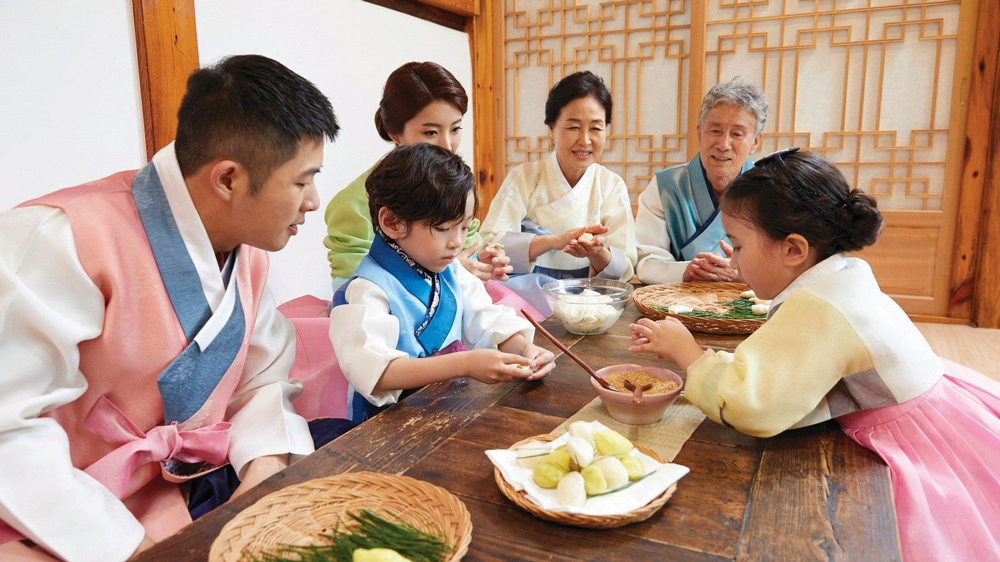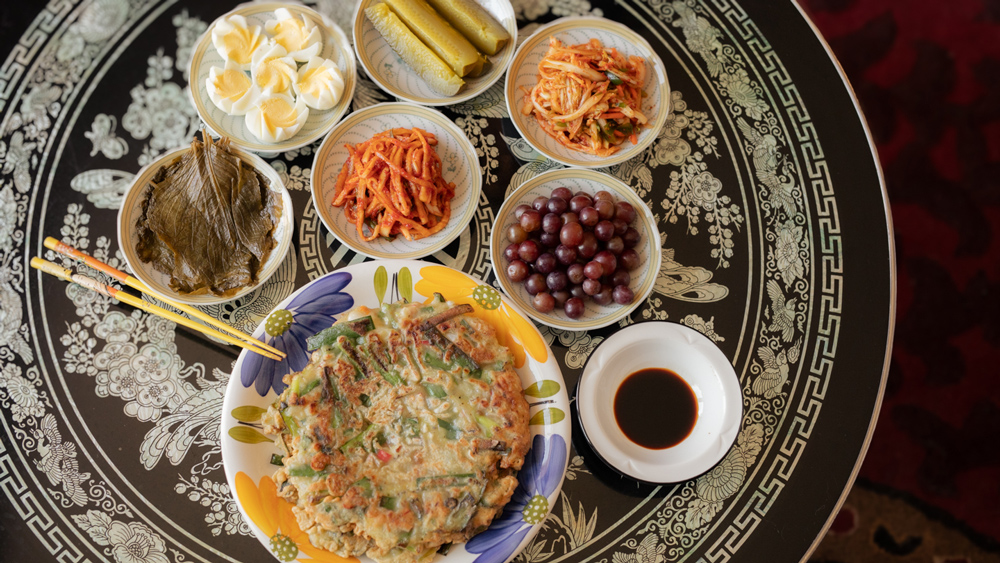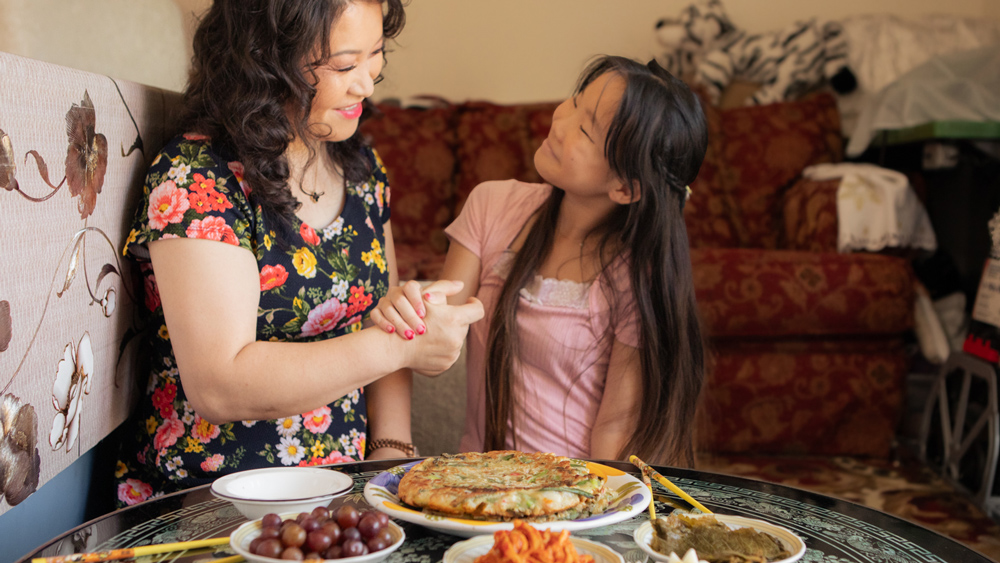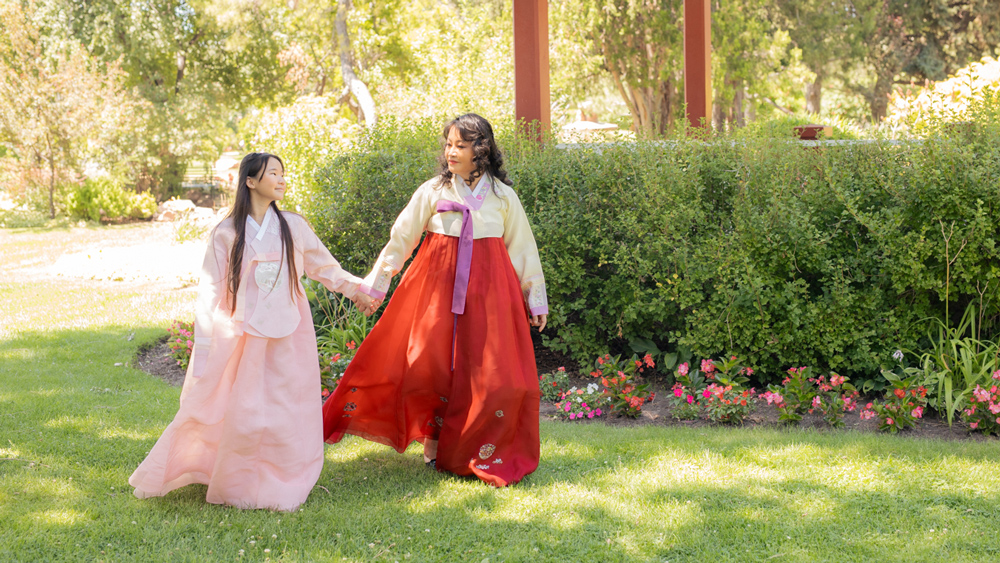Time Travelers: North Korean Defectors Resettling in South Korea
To reach freedom, North Korean defectors typically brave a perilous 3,000 mile journey through China and Southeast Asia. But even after finally reaching safety, they face a long road ahead as they begin their new lives.
The majority of North Korean refugees have resettled in South Korea. Many describe the transition like stepping out of a time machine, 50 years into the future. In addition to learning about things like the internet and ATMs, getting used to their newfound freedom alone can be a lot to grasp after decades of living in the world’s most authoritarian country.
A new journey, one of restoration, discovery, and adjustment, begins.

Resettlement Process
When North Korean refugees first reach South Korea, they go through a thorough debrief process with the National Intelligence Service to verify their background. From there, the Hanawon Settlement Support Center helps them ease into modern South Korean society.
Every defector must complete a three month adjustment program, which covers:
- Basic skills, like how to open a bank account and use the Internet
- Job and vocational training
- Field trips to shops, food courts, and other businesses
- The social and cultural differences between North and South Korea
- The history of the Korean peninsula
After completing the program, refugees receive government benefits to begin their new lives, including an initial subsidy, housing support, and healthcare.

South Korean Culture Shock
Emerging from Hanawon, North Korean refugees often experience culture shock when they find themselves fully immersed in South Korean society.
One of the first things many notice is the abundance of greenery and trees compared to North Korea. While the entire Korean peninsula was severely deforested by the mid-20th century, South Korea is one of the world’s few reforestation success stories.
Many defectors are also surprised by how safe South Korea is. One person can manage a big market stall on their own and not worry about theft, whereas goods have to be closely guarded at North Korea’s Jangmadangs. Other new experiences include the widespread availability of clothing and existence of vending machines and mannequins.
.jpg)
New Challenges
While the South Korean government provides material support, many North Korean refugees still face challenges starting over in a very different society. Just navigating daily life can be difficult at first, and making longer-term decisions like what to study or finding a stable job can be even more overwhelming.
“When I first arrived in South Korea, I was confused and didn’t know where to even start my new life in freedom. I wasn’t even sure who I was as a person.”
– Geumju, escaped North Korea in 2008

At school, additional study may be needed to catch up with their South Korean peers after decades of propaganda-based learning. In the workforce, many refugees have to retrain and re-qualify for the same jobs they had in the North, such as doctors and teachers. These discrepancies have contributed to an income gap between North and South Koreans in South Korea’s hyper competitive society.
In addition to figuring out the future, many refugees are still coping with physical and mental health issues from a traumatic past. A lack of healthcare in North Korea often results in decades of unaddressed medical and dental problems. Roughly 50% of North Korean refugees also suffer from PTSD. Many had to leave loved ones behind, witnessed or experienced torture, or survived trafficking, which can be tough to process.

Finding Community & Onward
Forming new relationships in South Korea can be one of the biggest challenges for defectors. In North Korea, lack of mobility and aspects of life organized by the regime meant that everyone in a neighborhood knew each other. To meet up with someone, it was commonplace to just stop by their home. In comparison, South Korea’s decentralized “yaksok” (promise) culture of scheduling a time and place to meet specific people may feel unfamiliar and take extra effort.
Refugees may also not want to reveal that they’re from North Korea or can have trouble sharing past experiences. Some may also experience prejudice against North Koreans for their accent or stereotypes, such as being uneducated or untrustworthy.
Overall, although life in freedom brings many advantages and benefits, it comes with some unexpected challenges. Before their escape, North Koreans may have only heard good things or focused on the positives. Moving to a foreign place and building a new life from scratch is difficult for anyone, and can be especially challenging for North Korean refugees.
Impact of the Pandemic
During the pandemic, refugee numbers have been at an all time low. Unprecedented restrictions on movement and surveillance have made the journey through China and Southeast Asia almost impossible.

On the resettlement side, refugees have also struggled as some support programs were scaled back or cut altogether. Many have felt especially lonely during this time or found it difficult to work towards their goals.
Agents of Change
Despite all odds, North Korean refugees are some of the most powerful examples of human resilience. When they have the support they need to successfully resettle in freedom, they can become some of the most effective agents of change on this issue.

Defectors are embracing and taking pride in their identity, sharing their stories on the global stage as YouTubers, entrepreneurs, and advocates. When they reclaim the narrative on North Koreans, they directly challenge the regime’s portrayal of their country.
North Korean refugees also have the unique opportunity to affect change inside North Korea through remittances. Many maintain contact with their home communities and send money back to their families, helping people inside and accelerating change at the ground level.
The Support of a Movement
Reaching freedom is just the first step. LiNK is dedicated to working with North Korean refugees to help build their capacity and realize their full potential in their new lives! We do this by:
- Organizing workshops for entrepreneurship, advocacy, and more
- Facilitating a 1:1 English tutoring program
- Sponsoring scholarships for North Korean students pursuing higher education
- Providing a community of ongoing support and resources

“I’m touched by LiNK’s supporters. I can feel their genuine heart. Before I learned more about LiNK, I just thought that I came out through a rescue network. I never imagined that so many people have been rooting for us and that it’s a bigger movement than just rescues. Now that I know all of you helped us with kind hearts, I want to succeed and do good things for others in South Korea.”
– Yuna, escaped through LiNK’s networks and resettled in 2021
We’re only able to provide this crucial support with your help. Donate today to keep these programs running.
Chuseok for North Koreans | No Way Home for the Holidays
Autumn is a significant season for many people and cultures around the world. It’s a period of transition and reflection, gratitude for the days gone by, and celebration of the harvest.
In both North and South Korea, this time of year is celebrated with Chuseok, or the mid-autumn festival. Also known as “Korean Thanksgiving,” it’s a major holiday that predates the division of the peninsula. Chuseok is observed on the 15th day of the 8th month of the lunar calendar, when the harvest moon shines brightest. Traditionally, people return to their ancestral hometowns to gather with family, share a variety of delicious foods, and pay respects to their ancestors.
But for North Korean refugees, there is no going back. Holidays like Chuseok can be a bittersweet time, one of both gratitude for a life in freedom and grief over being unable to celebrate with family still inside North Korea.
“The first Chuseok in the US felt very empty and lonely. It was just me and my two-year-old daughter, Mia, back then. It didn’t feel like a holiday. I had multiple emotions at the same time. Loneliness, emptiness… there were so many feelings that I couldn’t even put into words.“
– Holly, escaped North Korea in 2013
Chuseok celebrations have evolved to look a little different in North versus South Korea, and even in countries like the US where the Korean diaspora have resettled.

Chuseok Traditions in South Korea
In South Korea, Chuseok is considered the largest and most important holiday of the year. It’s celebrated over three days, during which a “national migration” takes place as people all over the country travel to their hometowns or to go sightseeing. Tickets for planes, trains, and buses are sold out months in advance, and freeways are packed with bumper-to-bumper traffic during the holiday period.
On the morning of Chuseok, families hold a memorial service for their ancestors at home, known as charye (차례). A table of food is prepared as an offering, typically featuring rice cakes, fresh fruits and vegetables, meat dishes, and the favorite meals of deceased loved ones. Families will also visit ancestral gravesites, a custom known as seongmyo (성묘), to pay their respects and tend to the graves.

From the ancestral table to large family meals, food is a central part of Chuseok celebrations. The defining dish of this holiday is seongpyeon (송편), a chewy, sweet, and nutty half-moon shaped rice cake steamed in fresh pine needles. It’s traditionally made with rice from the year’s harvest, finely milled into flour. Preparing seongpyon becomes a family activity as each piece is shaped by hand and filled with red bean paste, toasted sesame seeds, or chestnuts.
Other holiday foods include pajeon(파전), a crispy, savory pancake made with green onions; galbijjim (갈비찜), sweet and savory braised short ribs; and japchae(잡채), glass noodles stir-fried with meat and vegetables.

How Chuseok is Celebrated in North Korea
In North Korea, Chuseok is just a one-day celebration. While it is considered a key traditional holiday, its importance has been minimized relative to national holidays like the birthdays of Kim Il-sung and Kim Jong-il, and the anniversary of the founding of the Worker’s Party.
On both traditional and national holidays, North Koreans are urged to visit the statues of Kim family leaders or the Kumsan Palace of the Sun in Pyongyang, where the bodies of Kim Il-sung and Kim Jong-il lie.
It is much less common for widespread travel to take place during Chuseok due to severe travel restrictions and poor transportation infrastructure. However, these constraints have also made it so that generations of North Koreans remain in close proximity to their hometowns and relatives. For Chuseok, people gather with their nearby family members. Just like in South Korea, they’ll prepare special foods as offerings for charye, and then visit ancestral grave sites to pay respects.
After ancestral rites, festivities become a community affair with traditional food and folk games shared amongst family, friends, and neighbors. Songpyeon is also a holiday staple, but the North Korean version is made with a minced meat and vegetable filling, and are twice as big as South Korean ones. Common folk games are yutnori (윷놀이), a board game, and ssireum (씨름), or Korean wrestling.
Holly & Mia: A Legacy of Freedom
It’s been over a decade since Holly left her hometown in North Korea. But whenever she makes pajeon (파전), it takes her right back to her childhood—sitting by the frying pan and watching her mom cook, eagerly awaiting a taste. “Pa”(파) means green onion and “jeon”(전) refers to foods that have been pan-fried or battered. There are many varieties of “jeon,” made with everything from potatoes to zucchini, seafood, kimchi, and more.
Holly saw her mom cook this dish countless times in North Korea. It was an inexpensive, everyday staple, but also an essential part of the holidays. Every year for Chuseok, the mouthwatering aroma of oil and batter would draw everyone to the kitchen, where a colorful assortment of jeon was being prepared.
Holly now lives halfway across the world from North Korea, but every year during Chuseok, she sets out an offering table for charye. For hours, she prepares foods like pajeon with great care, remembering and honoring her parents and loved ones, who she can’t be with for the holidays.

In 2016, Holly reached freedom through LiNK’s rescue networks with one-year-old Mia in her arms.
Mia is now at an age where she’s able to understand some of the things her mother went through. Holly has begun to open up more about her life in North Korea, and does her best to keep their small family connected to their Korean heritage. She takes Mia to Korean language school on Sundays, and makes an effort to celebrate cultural holidays, like Chuseok. What can’t be put into words, Holly communicates through food—their dinner table is always full of delicious Korean cooking.
In 2024, Holly received her US citizenship, nine years after her resettlement!
"When I obtained my US citizenship, it felt like my escape journey was finally complete. I cried and felt so grateful to the US for giving me a new life. My greatest happiness is seeing Mia have a childhood free of the painful hardships that defined mine.”

These days, Chuseok has become a lively gathering with the many friends and neighbors they’ve met over the years! Holly gathers with other Koreans in the community, and they go all-out preparing delicious seongpyeon and pajeon. She takes great pride in wearing traditional hanboks with Mia, and explaining each dish when guests arrive. The festivities always continue long after dinner, with Korean games like jegichagi, a version of hacky sack, and yutnori, a board game.
Living in the US, Holly and Mia have been introduced to new traditions too. Just a month after Chuseok, their community gathers again to celebrate Thanksgiving with turkey and pumpkin pie, in true American fashion.

Holly still has hope that in her lifetime, she’ll be able to celebrate Chuseok with all her family and bring Mia to visit her hometown in North Korea.
We’re working towards the day when families don’t have to be separated. To date, LiNK has rescued almost 1400 North Korean refugees and their children, reuniting over 500 people with their families in freedom. As we’re helping North Koreans, like Holly, build new lives, we’re also leading initiatives to increase change inside North Korea, through advocacy, information access, and more.
Become a monthly donor and create a long-lasting legacy of freedom. Your support will rescue North Korean refugees waiting for their chance to escape right now, and fuel work that is increasing change and opening inside North Korea.




